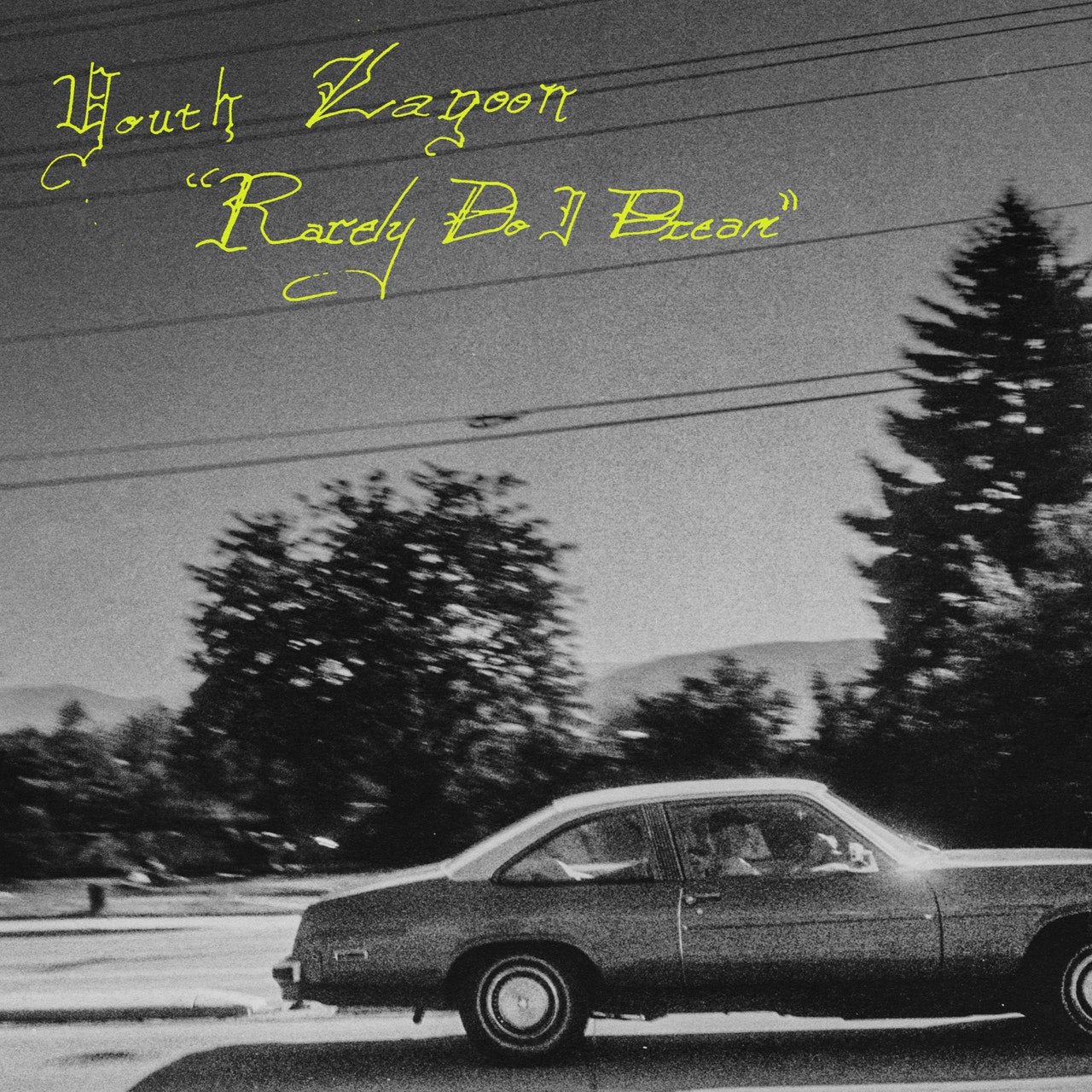In 2023, Youth Lagoon’s Trevor Powers made something of an archaeological discovery in Idaho: A box of home movies documenting the indie musician’s childhood had been fossilizing in the basement of his parents’ house. Powers popped the tapes into a VHS player and watched his younger self crackle into frame, as an elusive past life—Easter egg hunts, bathtime, backyard laughter—all pranced by in pixels.
On Rarely Do I Dream, Youth Lagoon’s newest LP, Powers collages these remnants of the past into a sonic scrapbook that sets the Powers clan beside the diner waitresses, devils, and detectives of a fabled American West. This pastiche of myth and memory is as shifty as its source material: Powers nimbly flits between loping piano melodies, shredding guitars, and buzzing synths to score a gothic frontier strewn both with vampires and blood relations. It’s an ambitious undertaking that highlights Powers’ gifts for lyrical microfiction and stirring compositions, with an emotional core that feels fugitive. As Powers harnesses a hard-earned confidence to narrate the world of Rarely Do I Dream, he leaves some of his idiosyncratic vulnerability—a well of raw feeling unmatched by even the most pathos-inducing VHS clips—in the rearview.
Produced by Powers and collaborator Rodaidh McDonald (who also worked on Youth Lagoon’s Heaven is a Junkyard), Rarely Do I Dream barrels forward with an outlaw’s velocity. Many of its songs reference Western themes (revolvers, pistols, “Vera Cruz on videotape,” and Jesse James all get mentioned), but its palette transcends geography and genre: The record’s cinematic songs draw from a toy chest of sounds, from prickly arpeggiating synths to outros that evoke steel drums. Tracks like “Gumshoe (Dracula from Arkansas),” “Lucy Takes a Picture,” and “Canary” feel closing-credits-ready, as horns and strings collapse into lingering instrumentals tailor-made for hightailing a stolen Buick through a canyon. Intermittently, Powers’ childhood memories cut in like weak signals on the car radio, spectral and spliced. On the record’s opening track, “Neighborhood Scene,” a male voice, describing the process of transferring 8mm film to VCR, almost sounds like a police dispatcher.
Rarely Do I Dream contains some serious guitar shredding, courtesy of longtime collaborator Erik Eastman, and a driving rhythm section. Powers’ prized instrument, however, has always been his peculiar voice, an alien warble capable of communicating trembling uncertainties. On Rarely Do I Dream, he continues to sing with intimate yet unsettling precision, employing past vocal tricks to uncanny effect—the stripped-down track “My Beautiful Girl,” for example, features the same weird syncopation as Powers lent to the phrase “Idaho Alien” back in 2023. Floating above the arrangements, Powers’ voice has a less ragged edge on much of Rarely Do I Dream; he sounds less raw, keening, and isolated, more fluidly integrated into the production. This change has a mixed effect, making the album a smoother listen while sacrificing some of Powers’ characteristic experimentation.
